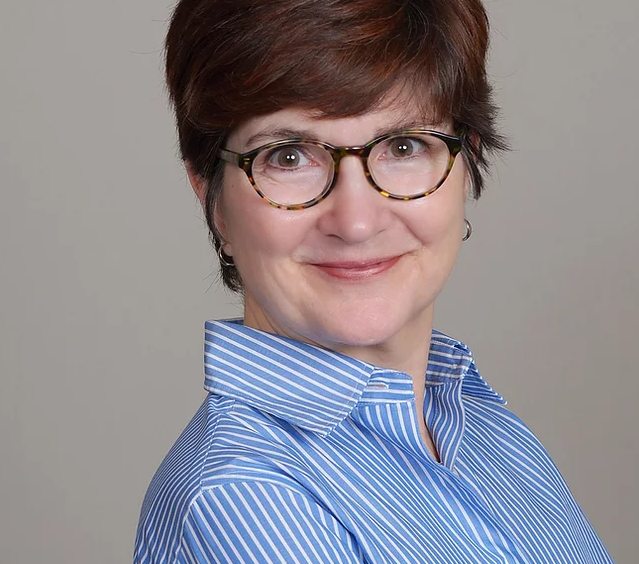New Board of Education member stands out with progressive policies
Photo courtesy of Lynne Harris campaign website
Lynne Harris poses for a picture. The board of education member ran a successful student-centered campaign.
January 4, 2021
This year’s election brought major changes on the national and local level. Elected on Nov. 3, Lynne Harris is the newest elected member of the Board of Education. If all goes well, Harris’s policies will allow her to be a voice for the students.
Harris got her start as PTA President at Highland View Elementary School in Silver Spring in 2010. This then brought her to serve on the Board of Directors for the Montgomery County Council of PTAs. After serving on the council for nine years as Vice President of Advocacy, Harris decided to run for school board as an independent candidate.
Harris faced a tough challenge from fellow independent candidate Sunil Dasgupta, a political science professor at the University of Maryland, who ran a campaign based on COVID-19 recovery, equitable education and teacher representation. However, he was defeated by Harris 51.6 percent to 47.4 percent, a margin of about 18,000 votes.
For her winning campaign, Harris received key endorsements from many organizations. These include: The Washington Post, Sierra Club, MoCo Students for Change, MoCo Students on Climate, MoCo immigration advocacy and Progressive Neighbors. Harris’s status as the more progressive candidate allowed her to gain these endorsements.
“I voted for Lynne Harris because of her progressive platform and advocacy experience,” WCHS senior Phoebe Chambers said.
Harris made it a priority to involve students in her campaign. This included many WCHS students, one of which was junior Mariam Coulibaly.
“My role in the campaign was basically volunteering to promote her and her views to voters coming to the polls as sort of a last chance to convince voters of her competence and being qualified for the job,” Coulibaly said. “Other volunteers and I stood outside for nearly the entire day handing out literature and asking voters if they knew who they were voting for for BOE and informing them about Lynne Harris.”
This student connection was very valuable to her campaign, even driving the creation of her own Instagram account, @lynne4students. Although students are not able to vote for board members, these actions increased the popularity of Harris among the community.
“She’s great at making relationships with ambitious students and those who want to see real change in our schools, and is very open to all opinions from all backgrounds,” Coulibaly said. “It’ll almost be as if students are BOE members themselves, getting to have a say on what they want to see in their schools.”
The key to Harris’s campaign were six major issues, outlined on her website lynne4students.org. The first issue on Harris’s website was flexible learning, which includes asking teachers to create adaptable lesson plans, along with generating a schedule to fit the unique needs of students. This includes reorganizing classes and homerooms to create a daily schedule that works for all.
“Having someone that prioritizes a schedule is essential because nowadays we need a structured schedule that we need to stick to so we can adjust faster and easier,” junior Mason Goldstein said.
The second issue on her page is support for students with special needs. This is especially important during the pandemic, as it is hard to get individualized attention in virtual learning. The return back to school has put students with special needs at a disadvantage, as Zoom makes it harder to get individualized support.
The third issue is getting everyone connected virtually. Students do not all have the same access to technology in their households, and there are many barriers to tackle to get everyone the same experience. Harris plans to work with MCPS families to ensure that everyone has access to the internet.
The fourth goal on Harris’s page is to support MCPS staff. Virtual learning is a new thing for everyone, including teachers. Harris plans to support teachers with county resources and remove barriers that make teaching harder.
The fifth goal on her website is to bring social connections into this virtual classroom. Virtual learning has, for the most part, eliminated the connections that can be formed in normal school. Harris wants to bring that part of school back.
The last goal on Harris’s website is to create in-person opportunities for students in Career Technology Education. These unique learning programs require students to be in person, and Harris has made it a priority to bring this component into MCPS.
Harris plans to incorporate these policies to improve the learning and teaching experience for the MCPS community, especially due to the changes that COVID-19 created.
“If she can accomplish some of the things she has planned, then our school year will dramatically change,” Goldstein said. “I feel that it will engage students more and we will enjoy school more and appreciate the work the board has done to make sure [that we] can have a successful school year.”


